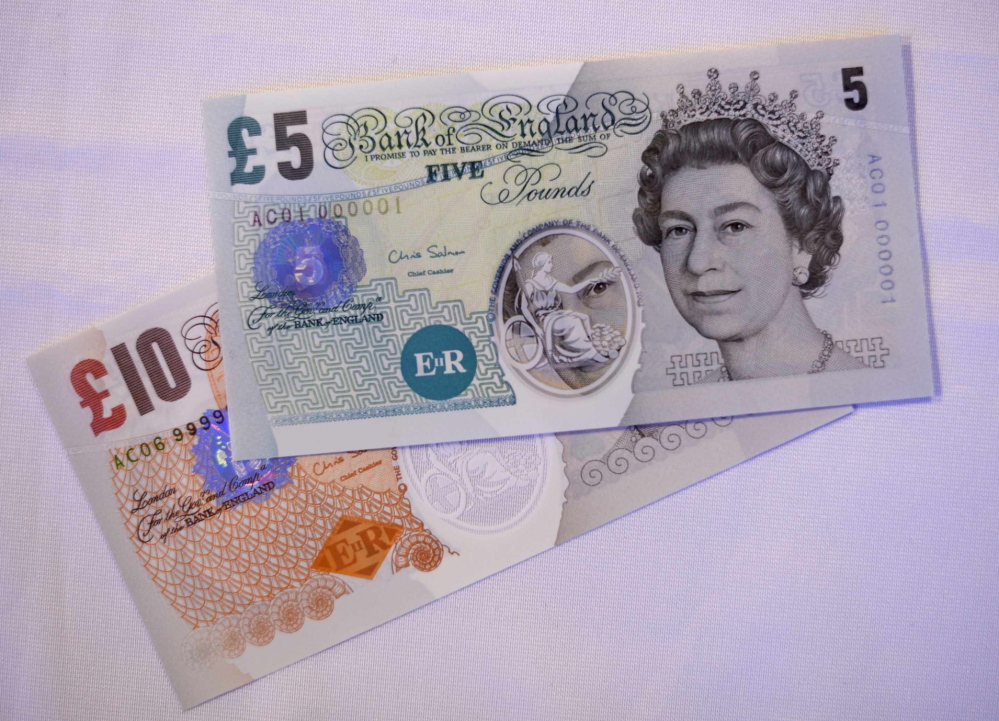LONDON — Britain will start printing banknotes on plastic instead of cotton paper in 2016 given “overwhelmingly supportive” public backing for the switch, the Bank of England said Wednesday.
The change will start with the five-pound note, about $8.20, featuring Winston Churchill, followed about a year later with a 10-pound note featuring Jane Austen. Nearly 13,000 individuals gave feedback during a consultation, with 87 percent in favor of switch, 6 percent opposed and 7 percent neutral.
About 20 countries already use polymer for their currency, and the BOE said the new notes are more secure, longer-lasting and cheaper to produce. It also announced new procedures for selecting historical characters to appear on the currency after criticism that the selection of Churchill for the fiver meant no woman would be represented on any of the U.K.’s notes.
“Our polymer notes will combine the best of progress and tradition,” Governor Mark Carney said at a press conference announcing the change. “They will be more secure from counterfeiting and more resistant to damage while celebrating the history and tradition that is important both to the bank and the nation as a whole.”
The BOE favors the term “polymer,” saying that “plastic” is misleading. During its consultation, it said that people, prior to seeing examples, expected the new notes would be thick and difficult to fold.
Send questions/comments to the editors.



Success. Please wait for the page to reload. If the page does not reload within 5 seconds, please refresh the page.
Enter your email and password to access comments.
Hi, to comment on stories you must . This profile is in addition to your subscription and website login.
Already have a commenting profile? .
Invalid username/password.
Please check your email to confirm and complete your registration.
Only subscribers are eligible to post comments. Please subscribe or login first for digital access. Here’s why.
Use the form below to reset your password. When you've submitted your account email, we will send an email with a reset code.